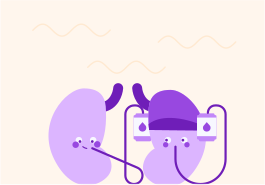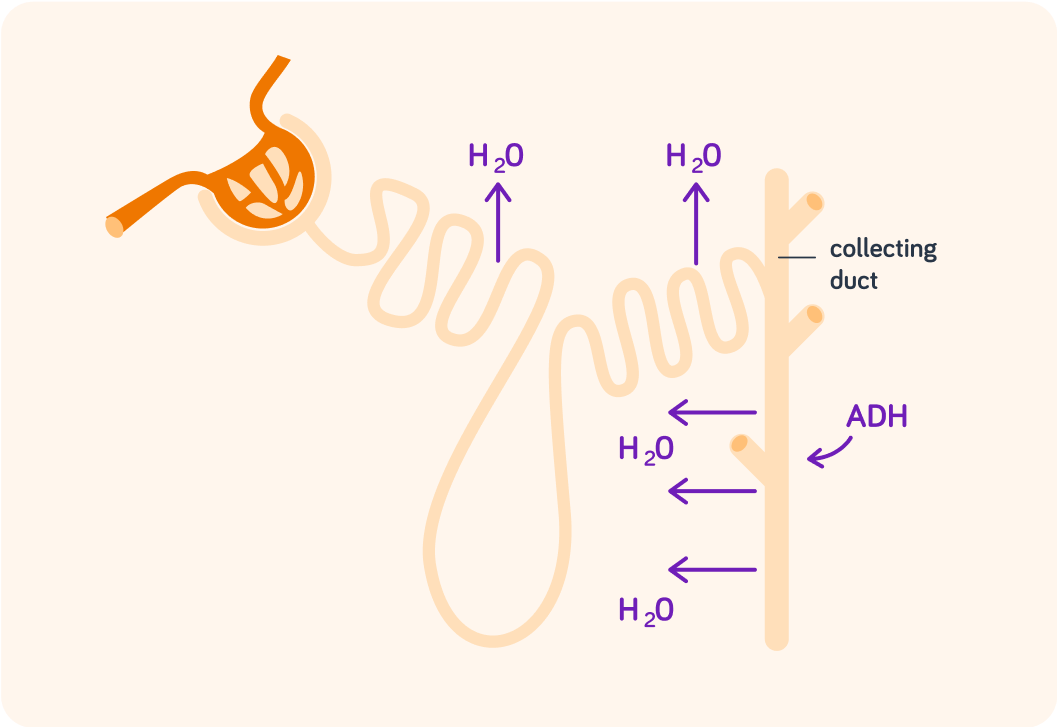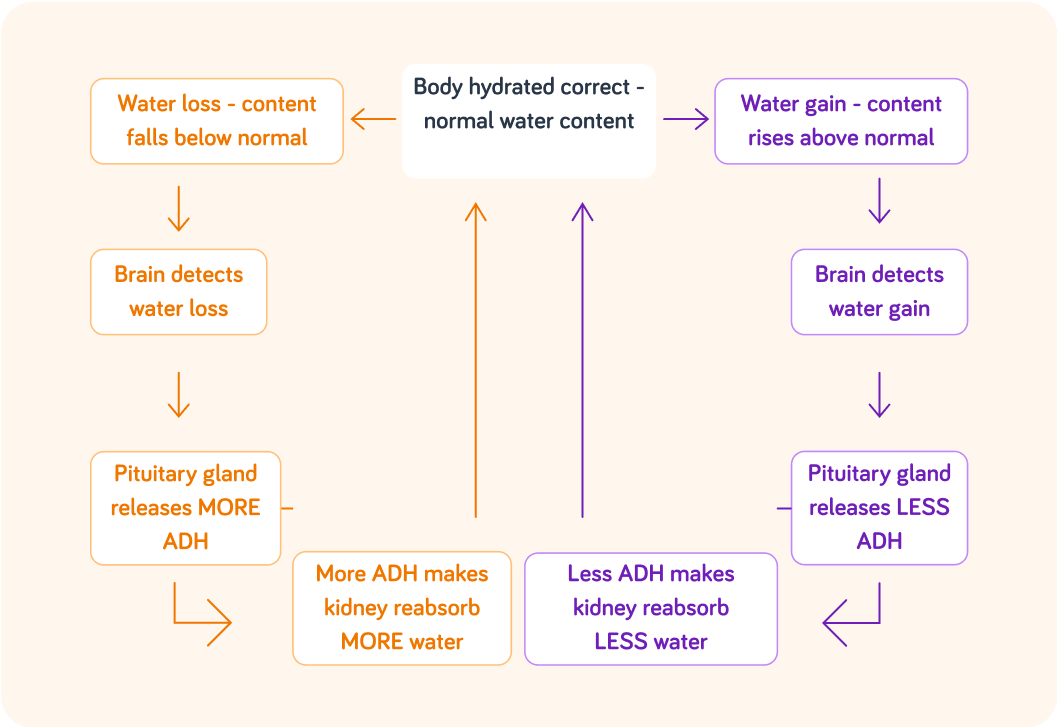YOU ARE LEARNING:
Anti-Diuretic Hormone

Anti-Diuretic Hormone
The reabsorption of water back into the blood is regulated by the anti-diuretic hormone (ADH).
Which organ controls the water concentration of the blood?

What do the kidneys produce?

Sometimes an organism produces lots of urine and sometimes less, even when the organism has consumed the same amount of fluids. What do you think is the best explanation for this?

Select all the parts of the nephron where water is reabsorbed.

You can select multiple answers
A hormone called ADH helps the nephron absorb more water
The presence of anti-diuretic hormone (ADH) means the nephron absorbs more water if the organism consumes less water.

Which part of the nephron does ADH have an affect on?


So the nephrons can control the amount of water reabsorbed with a hormone called anti-diuretic hormone (ADH). ADH is released from part of the brain called the pituitary gland. ADH makes sure that the collecting duct lets more water through, so more water can be reabsorbed back into the blood.
Water level is controlled by negative feedback. Take a look at the diagram. If the body experiences water loss, it means that the pituitary gland will ultimately release _______ ADH.
A) more B) less


When the pituitary gland releases more ADH it means kidneys absorb ________ water.
A) more B) less


How about the right-hand side of the diagram? If the body gains too much water, what will the kidneys ultimately do?
A) Absorb more water B) Absorb less water


Negative feedback means...
that if the body holds too much water, for example, it will try to reduce water absorption and if it holds too little water it will try to increase water absorption. It tries to balance the water content.

Which part of the body detects the change in water level?

Which part of the brain releases ADH?

If the blood water level increases above normal, what will be the effect of the negative feedback that controls water content in the body?

